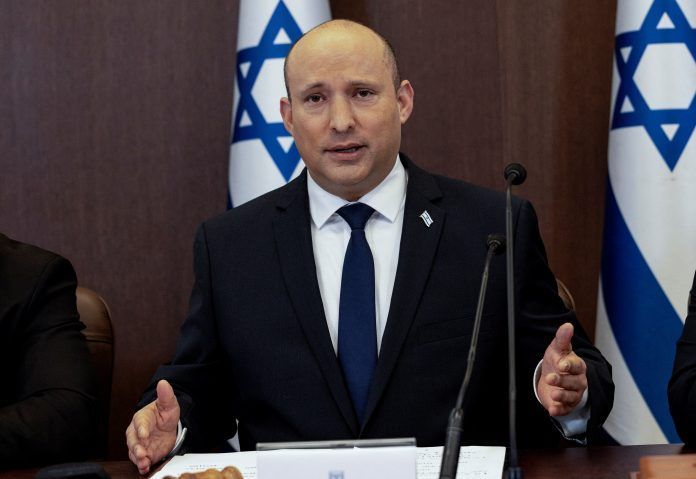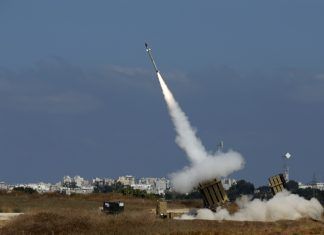By Dan Williams
JERUSALEM, Dec 12 (Reuters) – Israeli Prime Minister Naftali Bennett flew to the United Arab Emirates on Sunday and will meet its de facto ruler in the highest-level visit since the countries formalised relations last year.
Before taking off from Tel Aviv, Bennett said he and Abu Dhabi Crown Prince Sheikh Mohammed bin Zayed al-Nahyan would meet on Monday to discuss ways to bolster cooperation and strengthen economic and commercial ties.
There was no immediate confirmation from Abu Dhabi of the visit, which comes at a time of heightened regional tension as world powers try to revive a 2015 nuclear deal with Iran.
Israel has broached setting up joint defences with the Persian Gulf’s Arab states that share its concern over Iranian activities. Yet the UAE has also reached out to its Iran, sending its senior national security adviser there last Monday to meet his Iranian counterpart and President Ebrahim Raisi.
ANALYSIS: Will Iran Nuclear Deal Talks in Vienna Produce Results This Time?
Since August 2020, the UAE, followed by with Bahrain, Sudan and Morocco, have moved to normalise ties with Israel under a U.S.-sponsored initiative dubbed the “Abraham Accords” after the biblical patriarch revered by Jews, Christians and Muslims.
Bennett’s UAE trip is the first visit by an Israeli premier to any of those countries since the accords.
“In just one year since normalising our relationship, we’ve already seen the extraordinary potential of the Israel-UAE partnership,” Bennett said.
The rapprochement has been condemned by Palestinians, whose diplomacy with Israel stalled in 2014.
Bennett’s visit “violates the Arab consensus that is supposed to support the Palestinian cause amid the challenges imposed by the (Israeli) occupation,” Wasel Abu Youssef of the umbrella Palestine Liberation Organization told Reuters.
An Israeli newspaper reported on Sunday that Israel had declined to sell missile defences to the UAE due to its Iran links. A policy review could now be called for, Israel Hayom said, suggesting the approval of such sales may help distance the UAE from Tehran.
Israeli and UAE officials did not immediately respond to requests for comment on that report.
The Bennett government is due to decide this week whether to green-light a private Israeli-Emirati contract to offload the Persian Gulf oil in the Red Sea port of Eilat. That deal has been challenged in Israel’s Supreme Court by environmentalists and is opposed by Bennett’s energy minister.
(Additional reporting by Rami Ayyub, Ali Sawafta, Nidal al-Mughrabi and Ghaida Ghantous; Editing by Ari Rabinovitch, Raissa Kasolowsky and Pravin Char)






